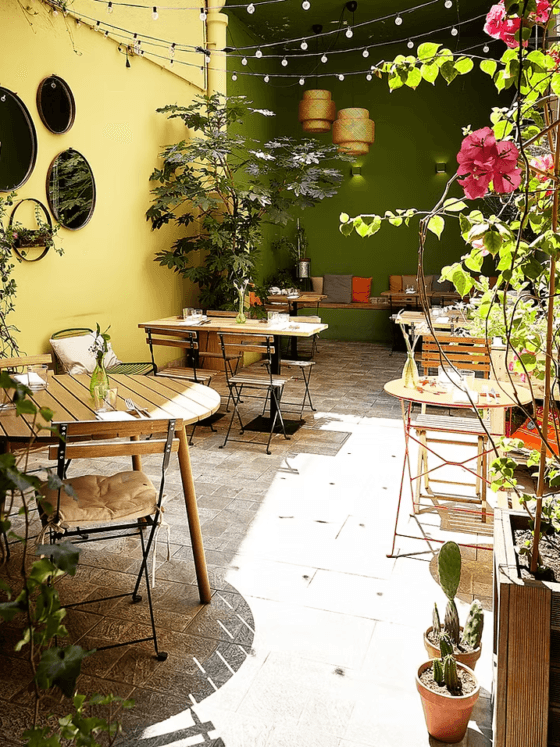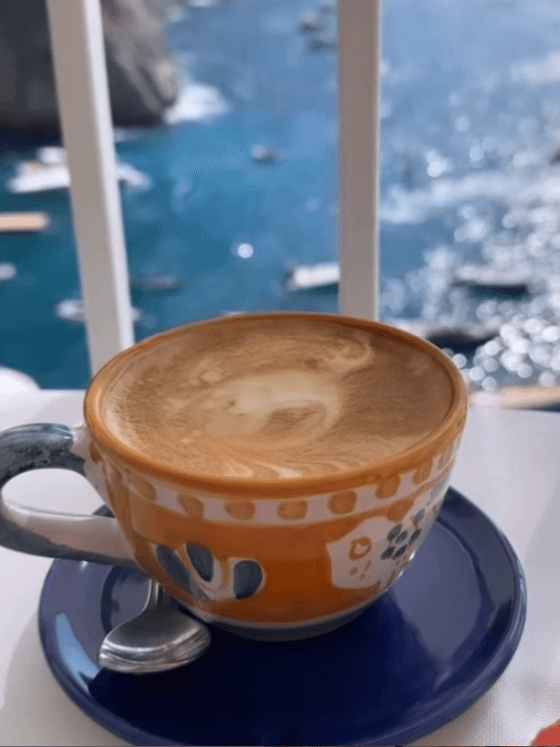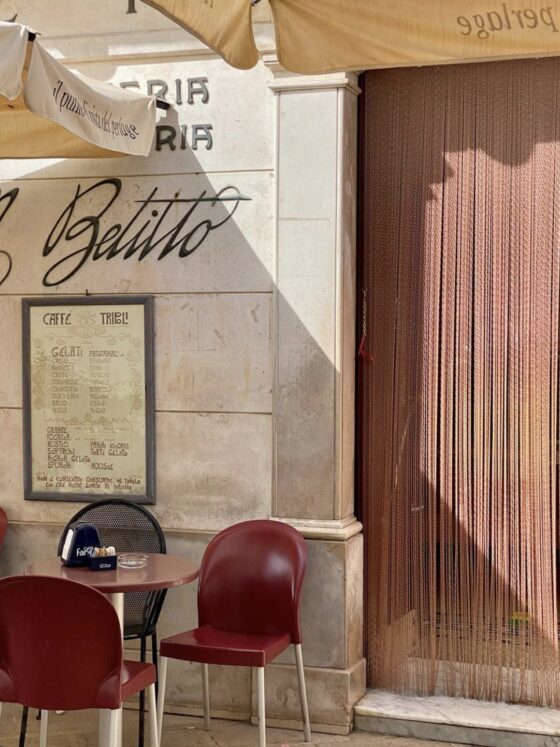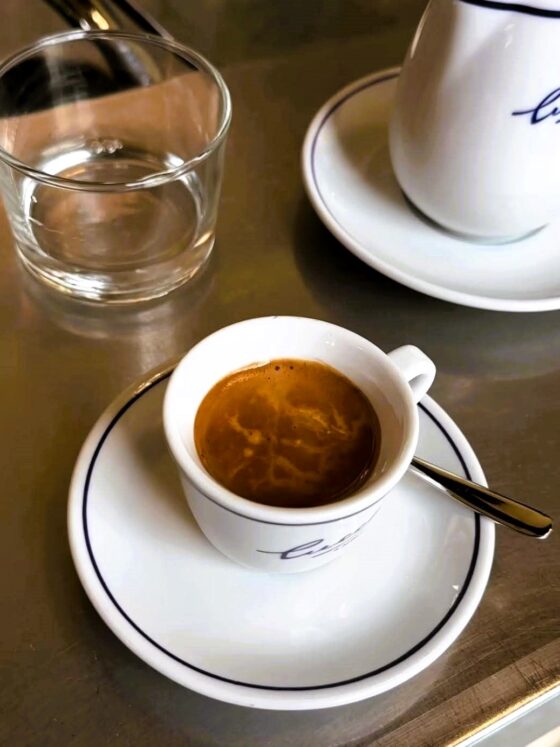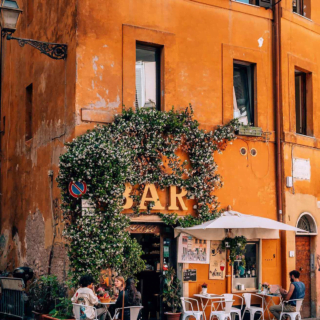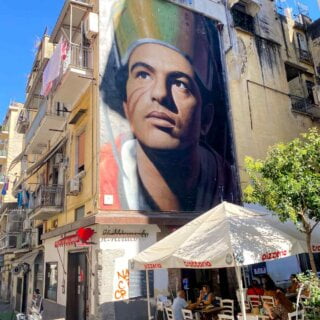And so, for us, it seems that a bottle of prosecco is never far away – but it got us thinking, is prosecco just an Italian sparkling wine, or can it truly take the place of champagne?
When it came time for celebration in our household, or when our family hosted a party, Christmas, or Easter, Dad would inevitably clasp his hands together and ask, “is time for some Prosecco?”
Within seconds, out came the chilled bottle, the cork popping and bouncing on the table, with a plume of cool air wafting from the bottle. We’d clink glasses, a few words spoken, and taste the refreshing bubbles. In the summers too, particularly, when visiting my mother-in-law for Sunday dinner, a bottle of prosecco is often ready in the freezer to make some Aperol spritzes for the table. And so, for us, it seems that a bottle of prosecco is never far away – but it got us thinking, is prosecco just an Italian sparkling wine, or can it truly take the place of champagne? As we ponder the qualities of prosecco and champagne, we look at some of the similarities, but ultimately, the differences, that make these sparkling wines so “effervescent” (we couldn’t resist…).
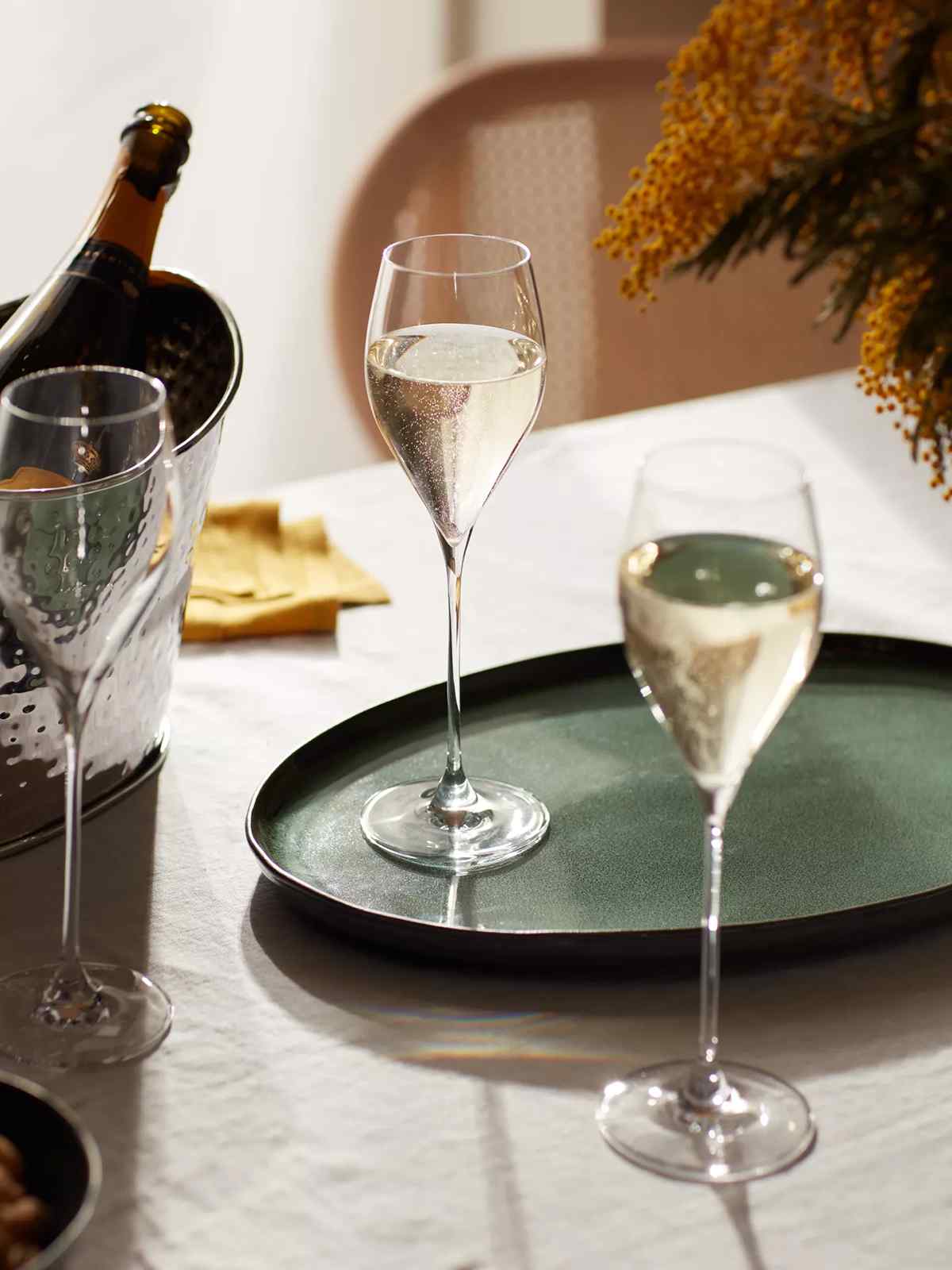
Champagne
For champagne, the most well-known fact is that to call a sparkling wine ‘champagne’, it must come from the Champagne region in France. Hence if it does not come from this region, it cannot be called champagne, so we are left with the adage that while all champagne is sparkling wine, not all sparkling wine can be champagne.
The protection of the champagne label has over time created a premium, a reserved title that evokes luxury, opulence, wealth, and success; Champagne wishes, if you will. The French make champagne according to a strict, or traditional process. The grapes first become a wine without bubbles, which is then bottled with yeast and sugar added after to each individual bottle of champagne. The process is long, precise, and specific. Once yeast and sugar are in the bottle, the winemaker seals the bottle; with nowhere to escape, the carbon dioxide works its magic, and voilà, you have your champagne awaiting. Once aged and ready for consumption, the taste of Champagne “typically boasts subtle yet expressive fruit notes that run the gamut from apples and pears to more citrus-leaning ones.” Given the variety of grapes to make Champagne, and the fermentation process in the bottle, champagne has that distinct flavor that has dominated the bubbly world for so long, and the go-to choice to mark milestones and a toast to success.
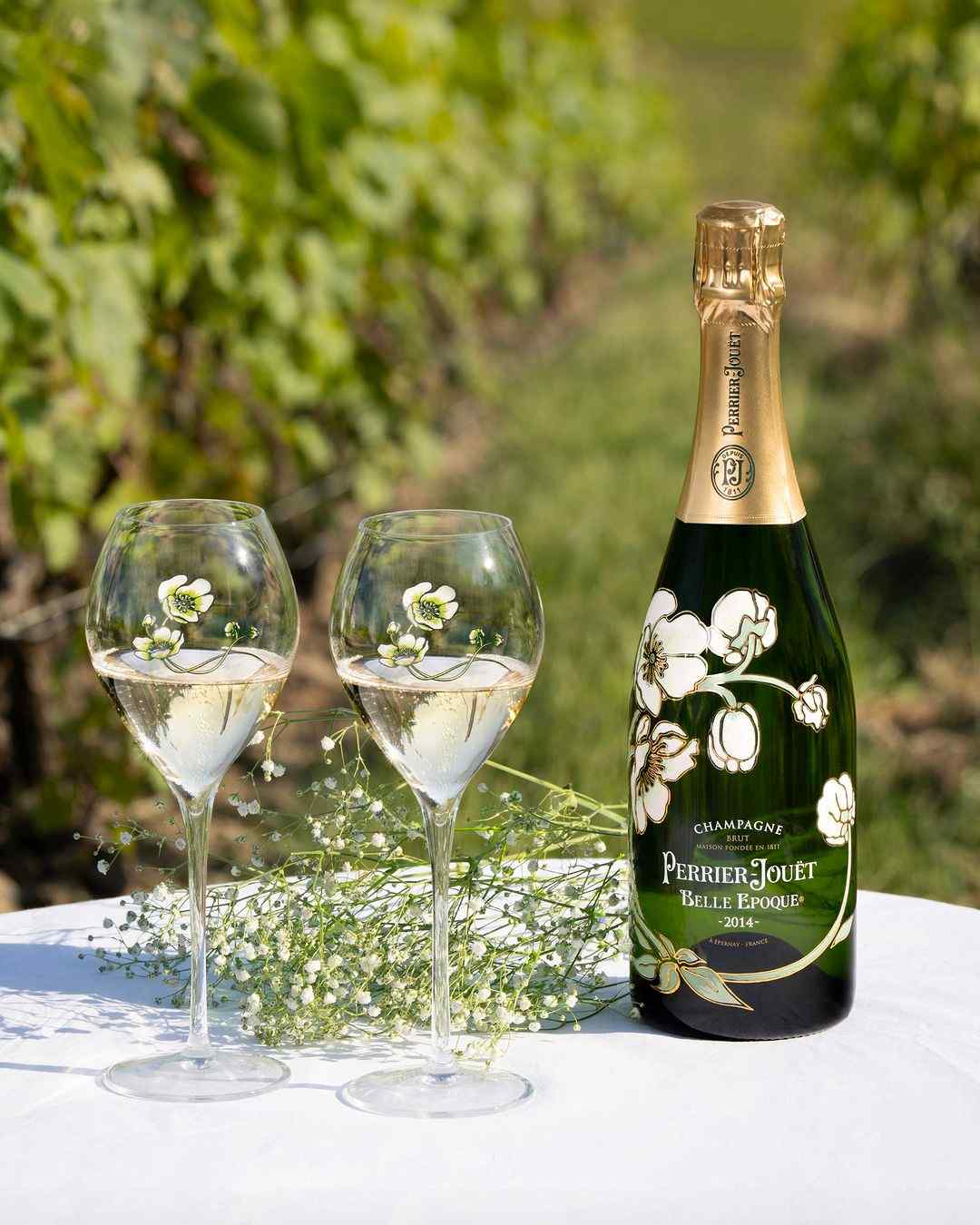
Prosecco, the Italian Sparkling Wine?
One difference between champagne and prosecco is that while champagne may be a blend of grapes (e.g., chardonnay, pinot noir, pinot Meunier etc.), Italians make prosecco primarily with the Glera grape variety. Though other grapes may be used to create a blend, 85% of the blend must be the Glera grape, otherwise it cannot be considered prosecco. Perhaps the largest difference however between champagne and prosecco is in the processing method. Generally, for prosecco, the fermentation process that provides the carbonation occurs in a tank, rather than the individual bottle, like champagne.
To some, this is known as the “tank method” of production. The winemaker places the wine in a steel tank, to which they add the sugar and yeast; then the carbonation process occurs. As the process completes on a larger scale, it is considered more “efficient”, which to the champagne aficionado, would indicate the superiority of champagne, given its more costly and time-consuming method of production.
Champagne or Prosecco: The Choice is Yours
When it comes time to choose, be it a French sparkling wine or an Italian sparkling wine, ultimately the choice is yours; your preference is what matters. Champagne has dominated the public spotlight for decades, but prosecco has made inroads, setting a stage all to itself (see: Mike Veseth’s article “Anatomy of a Prosecco DOC Boom”). And yes, in the marketplace, consumers may see Champagne as the elite selection, with prosecco as a notch below, or being the “people’s champagne”, but as Emily Saladino writes: “Prosecco is not ‘cheap Champagne’ but rather a different wine entirely.”
…for us, inside the Italian home, prosecco filled a niche, that is, a need for an Italian sparkling wine at any time; whether it was to celebrate at home, or just because it was a hot summer day, and the table needed refreshments before Sunday’s feast. In those moments, prosecco filled its niche, and our glasses.
And they may fill separate purposes. Reading The Wine Economist (Mike Veseth), he succinctly summarizes the roles of champagne and prosecco:
“Champagne has defined the sparkling wine segment for decades as a luxury product, which for most consumers means something to be saved for a special occasion. Weddings, birthdays, anniversaries, graduations. These were the times to uncork Champagne. The substantial niche for sparkling wines at other times was largely unfilled. Prosecco — less expensive and easy to like — filled that niche, powered by a general willingness of consumers to embrace anything and everything associated with Italy.”
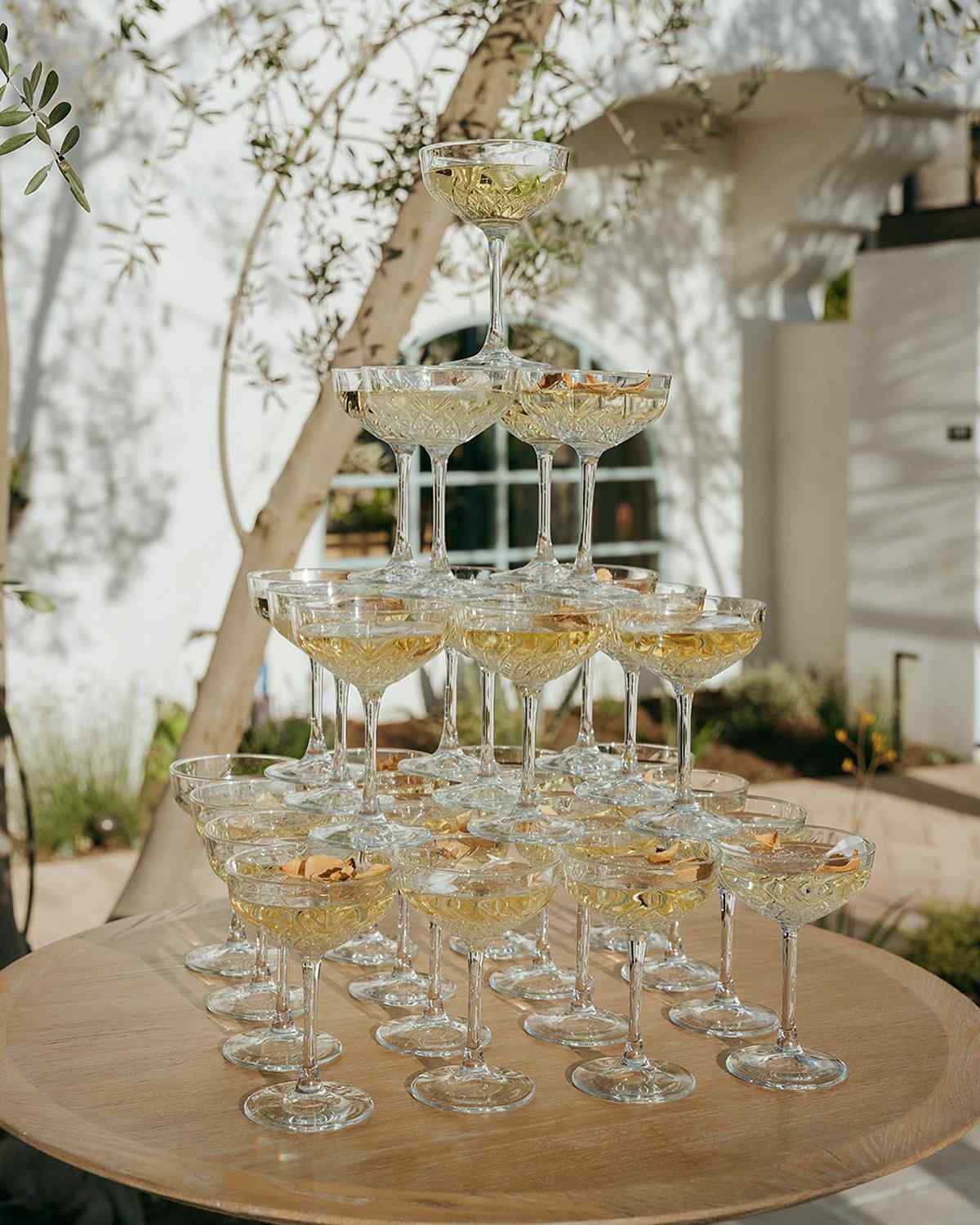
Reflecting on our own experience with sparkling wine, we’ve come to understand the Wine Economist’s view in a better light. Where champagne may be reserved for very special occasions (Weddings, New Year’s Eve at a nice restaurant), for us, inside the Italian home, prosecco filled a niche, that is, a need for an Italian sparkling wine at any time; whether it was to celebrate at home, or just because it was a hot summer day, and the table needed refreshments before Sunday’s feast. In those moments, prosecco filled its niche and our glasses.
This is not to say that prosecco is an inferior sparkling wine product. You will be sure to find excellent DOC, DOCG, or Superiore prosecco that rivals the quality and taste of champagne. It is simply that, prosecco’s production process lends itself to an accessibility and entry point in the market that is different than champagne. In a sense, champagne and prosecco really cannot be compared; they are similar but different, and more akin to being sisters, but not twins. So, we’ll happily sip champagne should the occasion call for it, but as we’ve said, in our home, when Dad asks if it’s time for prosecco, we’ll always say yes, because the everyday family time together is worth celebrating, and prosecco brings all the bubbles we need for those moments.
Shop Merch


